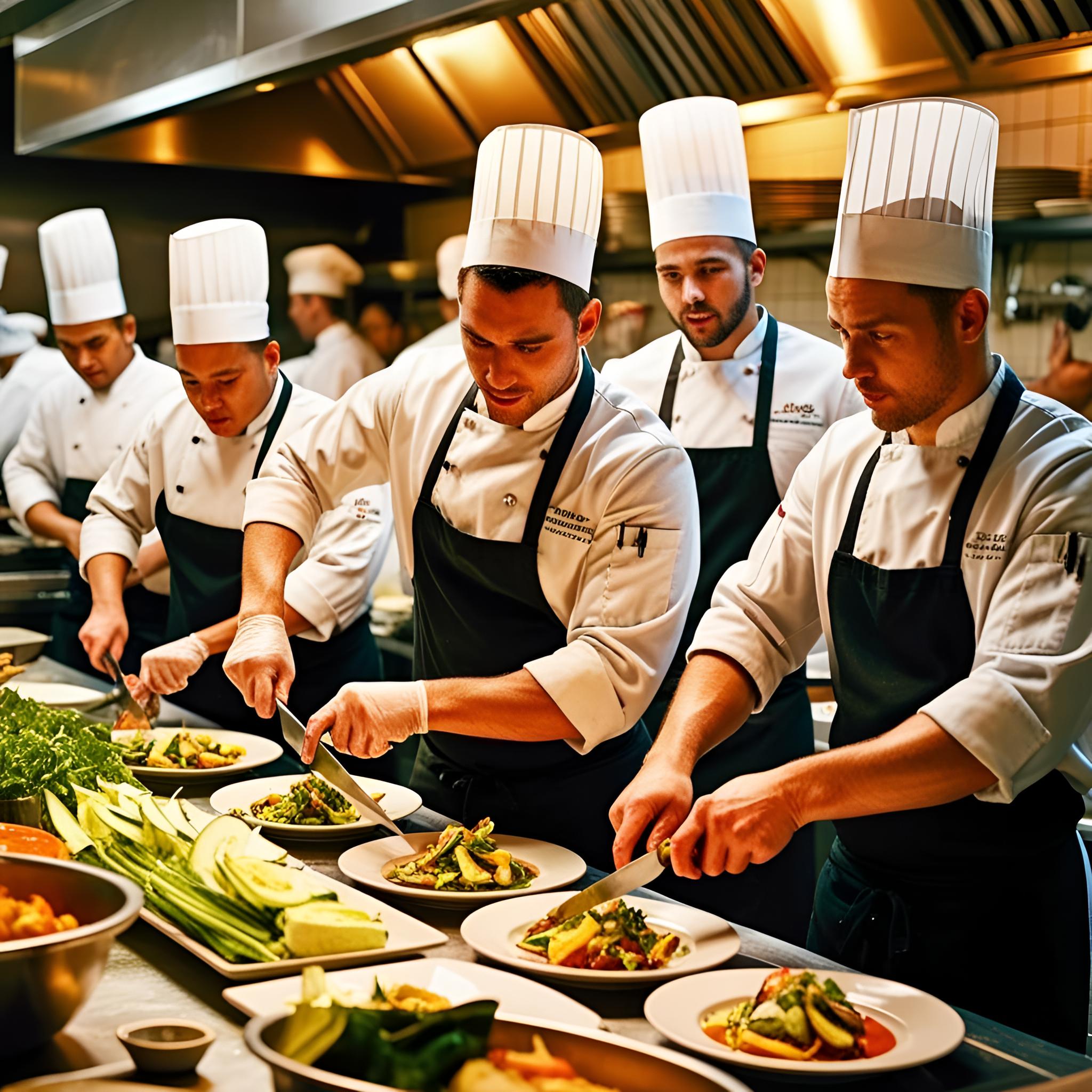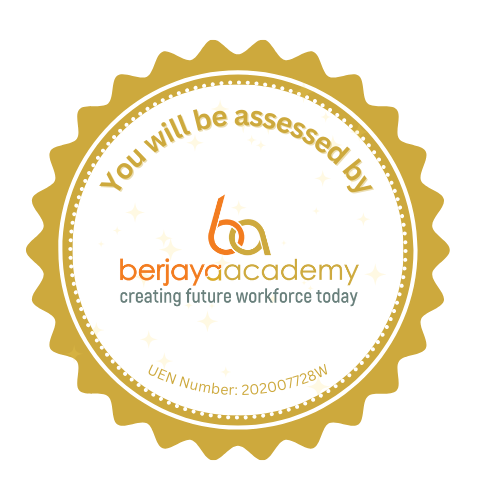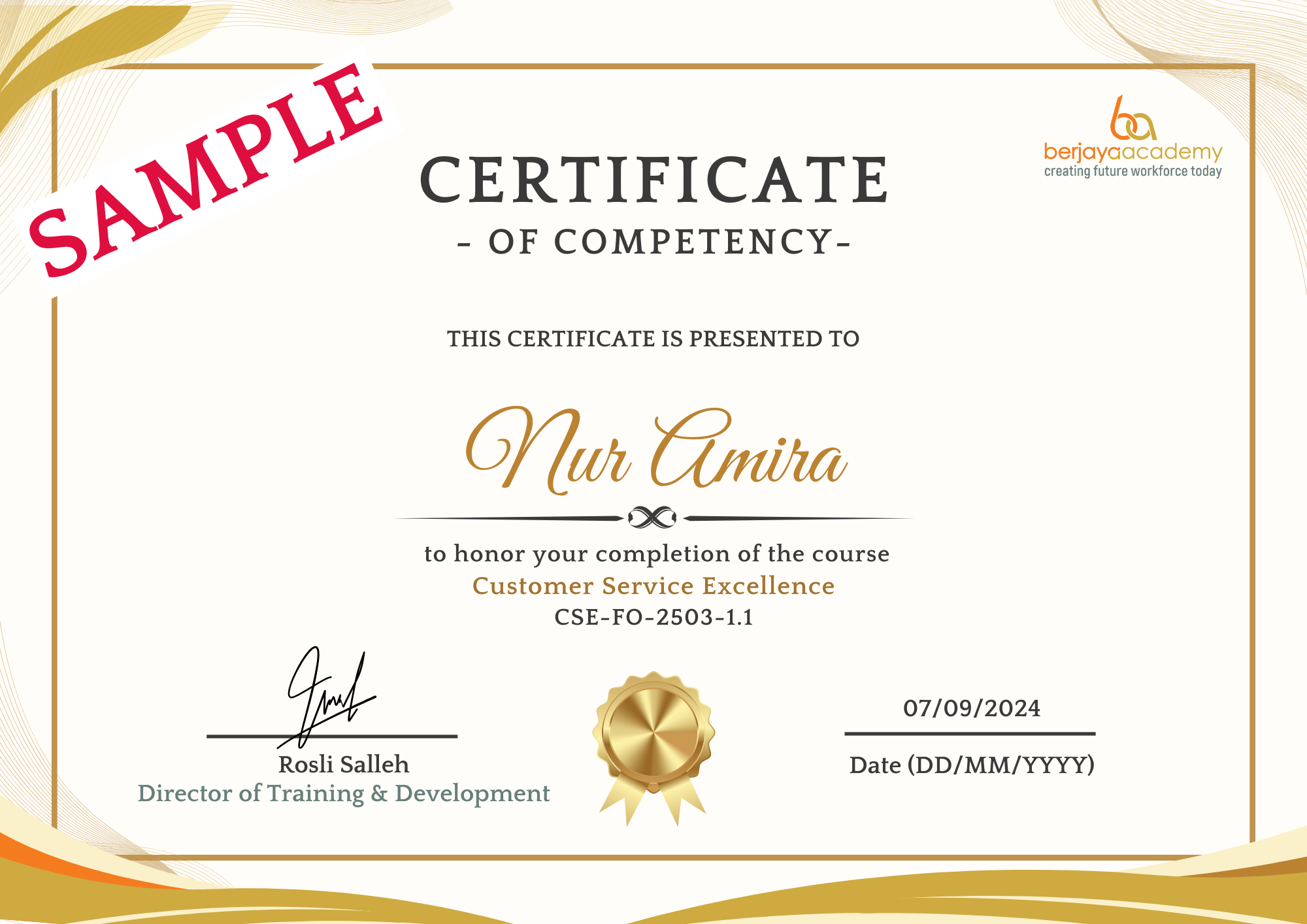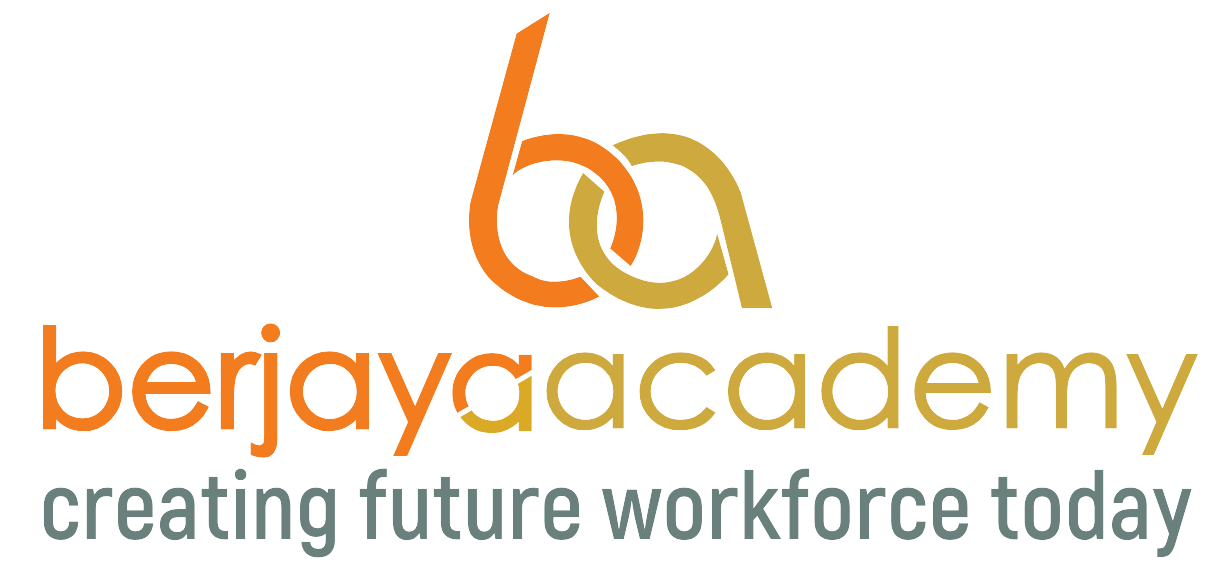
Course Details
Course Title: Stress and Time Management for Kitchen Operations
Course Code: FSH-FB-2503-1.1
Course Accreditation
Accreditation Type: Certificate of Competency
Course Duration
Total Course Hours: 8 hours (1 day)
Course Fee
Total Course Fee: S$180/pax
Funding Available (If Applicable):
- Training Industry Professionals in Tourism (TIP-iT)
- NTUC Company Training Committee (CTC) Grant
Summary
Topics:
- Managing high-pressure situations during peak hours.
- Managing high-pressure situations during peak hours.
- Effective time management techniques.
- Team collaboration and communication skills.


Learning Objectives for Stress and Time Management for Kitchen Operations
By the end of this course, participants will be able to:
- Manage high-pressure situations during peak hours by applying effective stress management techniques and maintaining composure.
- Utilize time management techniques to prioritize tasks, streamline kitchen operations, and ensure efficiency during busy periods.
- Enhance team collaboration and communication skills to improve workflow and reduce stress, fostering a supportive and productive kitchen environment.
Learning Units for Stress and Time Management for Kitchen Operations
Unit 1: Managing High-Pressure Situations During Peak Hours
- Objective: Develop strategies to stay calm, focused, and efficient during peak kitchen hours and high-pressure situations.
- Content:
- Understanding the causes of stress in kitchen environments (e.g., high customer volume, tight deadlines).
- Techniques for staying calm under pressure (e.g., deep breathing, positive self-talk).
- Developing a resilient mindset: how to view challenges as opportunities.
- Recognizing signs of burnout and stress and when to ask for help.
Unit 2: Effective Time Management Techniques
- Objective: Apply time management techniques to improve efficiency and productivity during busy kitchen operations.
- Content:
- Prioritization methods (e.g., the Eisenhower Matrix: urgent vs. important tasks).
- Time-blocking and creating task lists to manage workday flow.
- Setting realistic goals and deadlines for kitchen tasks.
- Techniques for delegating tasks effectively to kitchen staff.
Unit 3: Team Collaboration and Communication Skills
- Objective: Develop effective collaboration and communication strategies within the kitchen team to enhance workflow and reduce stress.
- Content:
- The importance of clear and effective communication in the kitchen (e.g., verbal and non-verbal cues).
- Methods for fostering teamwork: listening skills, constructive feedback, and mutual support.
- Delegation and managing kitchen staff workload to avoid stress.
- Conflict resolution and problem-solving techniques within the team.
Activities:
- Group exercise: simulate a kitchen rush scenario and practice communication strategies (e.g., active listening, clear instructions).
- Team-building activity: work together to solve a kitchen-related challenge while practicing communication and collaboration.
- Role-play: handling communication breakdowns and resolving conflicts within the team.
